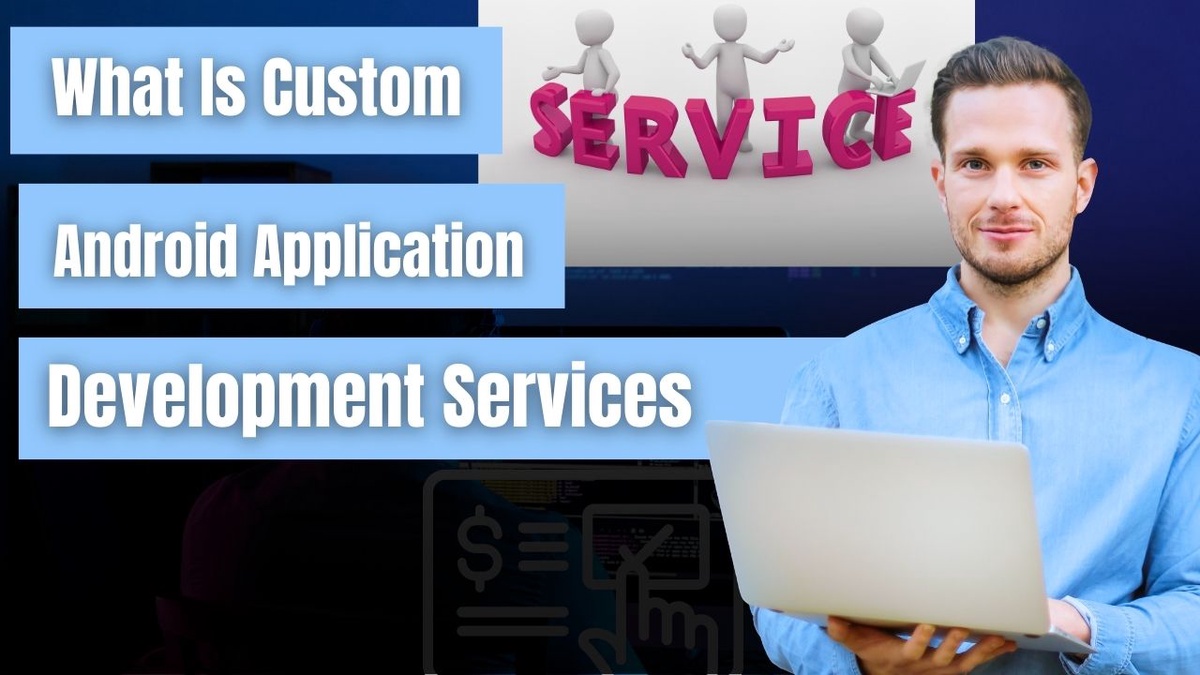Custom Android application development services refer to specialized services offered by software development companies or individual developers to create tailor-made mobile applications for the Android operating system. These services are sought after by businesses, organizations, entrepreneurs, and individuals who require unique, personalized solutions to address their specific needs, preferences, and objectives.
Here's a detailed breakdown of what custom Android application development services entail:
-
Requirement Analysis: The process begins with a thorough analysis of the client's requirements. This involves understanding the client's business goals, target audience, market niche, and the specific functionalities they require in the application. Developers collaborate closely with clients to gather detailed requirements and create a comprehensive project scope.
-
Design and UI/UX Development: Once the requirements are gathered, the next step is to design the user interface (UI) and user experience (UX) of the application. Designers create wireframes, mockups, and prototypes to visualize the layout, navigation flow, and interaction elements of the app. The goal is to create an intuitive, visually appealing interface that enhances user engagement and satisfaction.
-
Development: With the design finalized, developers proceed to write the code and develop the functionalities of the Android application. They leverage programming languages such as Java or Kotlin along with Android development frameworks like Android SDK (Software Development Kit) and libraries to build the app's features, including user authentication, data management, communication with external services, and integration of hardware features like camera or GPS.
-
Testing and Quality Assurance: Quality assurance (QA) is a crucial phase in custom Android app development. Developers conduct rigorous testing to ensure the application functions flawlessly across different Android devices, screen sizes, and versions. This includes functional testing, performance testing, compatibility testing, security testing, and usability testing. Bugs, errors, and inconsistencies are identified and addressed to ensure a high-quality, stable application.
-
Deployment: Once the application is thoroughly tested and deemed ready for release, it is deployed to the Google Play Store or other distribution platforms. Developers handle the submission process, ensuring that the app meets all the guidelines and requirements set forth by the app store. They also optimize the app's listing with compelling descriptions, screenshots, and promotional materials to attract users.
-
Maintenance and Support: After the app is launched, developers provide ongoing maintenance and support services to ensure its continued functionality and performance. This includes monitoring the app for any issues or bugs, releasing updates to fix problems or introduce new features, and providing technical support to address user inquiries or concerns. Maintenance services may also include optimizing the app for performance improvements and compatibility with new Android versions.

Benefits of Custom Android Application Development Services
Custom Android application development services offer a range of benefits for businesses, organizations, entrepreneurs, and individuals seeking tailored solutions for their mobile app needs.
Here are some of the key advantages:
-
Customization: One of the primary benefits of custom Android app development is the ability to tailor the application to the specific requirements, preferences, and branding of the client. Custom apps can be designed and developed with unique features, functionalities, and user interfaces that align perfectly with the client's objectives.
-
Scalability: Custom Android apps can be designed with scalability in mind, allowing them to grow and adapt as the business evolves. Developers can build flexible architectures and implement scalable technologies to accommodate increasing user demand, new features, and expanding user bases.
-
Enhanced Security: Custom Android apps offer improved security compared to off-the-shelf solutions. Developers can implement robust security measures, such as data encryption, secure authentication mechanisms, and secure communication protocols, to protect sensitive information and mitigate security risks.
-
Optimized Performance: Custom Android apps can be optimized for performance to deliver a smooth, responsive user experience. Developers can fine-tune the app's code, optimize resource usage, and leverage platform-specific optimizations to ensure fast loading times, smooth navigation, and efficient operation across a variety of devices.
-
Integration with Existing Systems: Custom Android apps can be seamlessly integrated with existing software systems, databases, APIs, and third-party services used by the client. This integration allows for streamlined workflows, data synchronization, and interoperability between different systems, improving efficiency and productivity.
-
Competitive Advantage: Custom Android apps can give businesses a competitive edge by offering unique features, functionalities, and user experiences that differentiate them from competitors. Custom apps can help businesses stand out in the crowded app marketplace and attract and retain customers more effectively.
-
Greater Control and Ownership: With custom Android app development, clients have full control and ownership over the app's development process, intellectual property, and future roadmap. This control allows clients to prioritize features, make changes, and adapt the app to evolving business needs without being constrained by the limitations of pre-built solutions.
-
Improved User Experience: Custom Android apps can be designed with a focus on providing an exceptional user experience (UX). Developers can create intuitive interfaces, streamline navigation, and optimize usability to ensure that users can easily accomplish their tasks and enjoy using the app.
-
Analytics and Insights: Custom Android apps can be integrated with analytics tools and tracking mechanisms to gather valuable data on user behavior, app usage patterns, and performance metrics. This data can provide valuable insights for decision-making, optimization, and future enhancements.
-
Long-Term Cost Savings: While custom Android app development may involve higher upfront costs compared to off-the-shelf solutions, it can lead to long-term cost savings and return on investment (ROI). Custom apps are tailored to the client's needs, eliminating unnecessary features and avoiding recurring licensing fees associated with third-party solutions.
Overall, custom Android application development services offer numerous benefits, including customization, scalability, enhanced security, optimized performance, competitive advantage, greater control and ownership, improved user experience, analytics and insights, and long-term cost savings. These advantages make custom Android apps an attractive option for businesses and individuals looking to leverage mobile technology to achieve their goals and objectives.


No comments yet